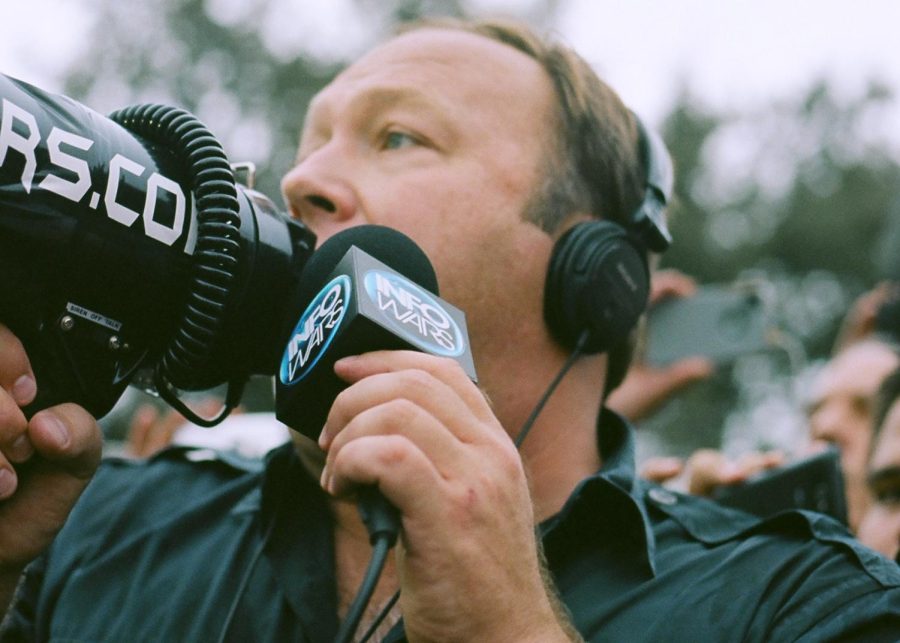Editorial | There needs to be a limit on hate speech
Image via Wikimedia Commons, photo by Sean Anderson
Alex Jones speaks to a crowd.
October 14, 2022
Two events at Penn State have recently been criticized for bringing hateful, alt-right speakers onto their campus, including a founder of the Proud Boys and Milo Yiannopoulos, whose event was called “Pray the Gay Away.” Many students and faculty members protested these events. However, the university cited the First Amendment as the reason why the speakers were allowed to come despite their hateful content.
Events like these including hateful speakers or platforms that allow people like Alex Jones to spew hateful conspiracy theories about the Sandy Hook shooting should be restricted. While the First Amendment does protect people and give them the ability to say what they want, this doesn’t mean they always should. While we do have free speech, hate speech — especially hate speech to gain monetary value — should be restricted, as it allows people to continue saying hateful things without fear of repercussions.
Hate speech is “offensive discourse targeting a group or an individual based on inherent characteristics,” according to the United Nations. It can be hard to define, but often entails offensive images, pejorative words and anything that targets someone based on their identity.
Alex Jones, the conspiracy theorist who used his large platform of InfoWars to spread nasty and false information about the Sandy Hook shooting claiming that it was a conspiracy to promote gun control, is now forced to pay $1 billion to the families of the victims of the shooting and others affected by his conspiracy. Jones made money for years by spreading this conspiracy — his net worth was $270 million dollars. Whether or not he believed in his hateful language, he was able to use it to make his income while harming the families of the shooting’s victims. It is despicable to make money over false and harmful theories.
Oftentimes when criticized, Jones cited that he was protected under free speech to say these hateful things. While lawyers warned him that false speech is not protected in the same way as true speech, he used this as his defense in the trial which ultimately led to his downfall.
Alex Jones’ downfall shows the beginning of a shift in the system away from emboldening hate speech. However, this isn’t always the case. The events at Penn State and the constant swirl of hateful speech on social media from figures with large followings such as Kanye West and Andrew Tate show the extensive harm that hateful speech can bring.
Hate speech is only the beginning. Hate crimes in 2020 reached their highest level in the past decade. When harmful speech like that of Alex Jones and the alt-right speakers on Penn State’s campus circulates, often without people fearing its repercussions, this can lead to people acting on this speech and committing heinous crimes against innocent people. Just because free speech is protected doesn’t mean that it doesn’t have real world implications. Speech that is false and harmful has real consequences. There has to be more limits on hate speech to prevent further physical violence and hate crimes which occur as a direct result of such rhetoric.



